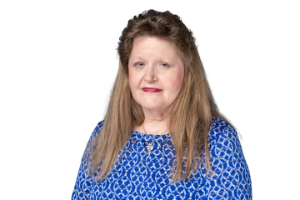
verloskundige kampen , or midwives, have been an integral part of the Dutch healthcare system for centuries. In fact, the word “midwife” is derived from the Dutch word “vroedvrouw”, meaning “wise woman”. Midwives in the Netherlands are highly respected and play a vital role in providing exceptional care to pregnant women and their families. In this article, we will explore the unique and progressive approach to midwifery healthcare in the Netherlands.
A Tradition of Trust and Autonomy
In the Netherlands, midwives have been attending births since the 1700s and have been officially recognized as healthcare professionals since the early 1900s. This long-standing tradition has fostered a high level of trust and autonomy between midwives and their clients. Unlike many other countries where midwives work under the supervision of doctors, midwives in the Netherlands are independent practitioners. They are trained to handle low-risk pregnancies and births, but they also have the authority to refer clients to obstetricians if the need arises.
Personalized and Continuous Care
One of the most significant differences in midwifery care in the Netherlands compared to other countries is the continuity of care provided by one midwife throughout a woman’s pregnancy, birth, and postpartum period. This means that the same midwife who conducts the initial intake appointment will also be present at the birth and provide follow-up care after the baby is born. This personalized care allows midwives to develop a strong relationship with their clients, ensuring comprehensive and individualized support throughout the entire perinatal journey.

This model of care has been proven to have positive outcomes, including decreased rates of medical interventions and higher satisfaction rates among women. Studies have also shown that women who receive continuous care from a known midwife have lower rates of postpartum depression and higher rates of successful breastfeeding.
A Holistic Approach to Healthcare
Midwifery care in the Netherlands is not limited to the physical well-being of the mother and baby; it encompasses a holistic approach to healthcare. Midwives provide comprehensive support, including emotional and social guidance, to their clients throughout pregnancy, birth, and postpartum. They also work closely with other healthcare professionals, such as mental health counselors, to ensure the overall well-being of their clients.
Additionally, midwives in the Netherlands are trained to recognize and address any potential risks during pregnancy and childbirth promptly. They are equipped with the necessary skills and knowledge to handle emergencies and complications, giving women the peace of mind that they are in capable hands.
Empowering Women and Promoting Autonomy
In the Netherlands, midwives believe in empowering women to make informed decisions about their bodies and their births. This means providing them with all the information and support they need to make choices that align with their values and beliefs. Midwives respect the autonomy of their clients and involve them in every step of the decision-making process, whether it be choosing the location of the birth or deciding on pain management options.
This patient-centered approach to care has significantly contributed to the high levels of satisfaction among Dutch women. It gives them a sense of ownership over their pregnancies and births, leading to positive birth experiences.
Celebrating the Role of Midwives
In the Netherlands, midwives are celebrated and recognized for their essential role in the perinatal journey. Every year on May 5th, the country celebrates National Midwives’ Day, where the exceptional contributions of midwives are acknowledged and appreciated. Midwives are not only valued by the women they care for, but also by the healthcare system as a whole.
In conclusion, the verloskundige kampen in the Netherlands provide exceptional care to pregnant women and their families. Their long-standing tradition of trust, personalized and continuous care, holistic approach, and promotion of autonomy have led to positive outcomes and high levels of satisfaction among women. The Dutch model of midwifery healthcare is a shining example of how empowering women and fostering strong relationships can lead to better overall well-being for both mothers and babies.